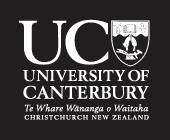Dr Aaron Marshall
No more applications being accepted
Funded PhD Project (Students Worldwide)
About the Project
The capture, storage and recovery of renewable solar energy are major global challenges. The solar redox flow battery could meet these challenges, as they can directly capture and store solar energy on a large scale at low cost. Solar redox flow batteries work by photo-electrochemically converting solar energy into chemical energy within a redox couple dissolved in a suitable electrolyte. This stored energy can then be recovered using conventional redox flow battery technology.
In this project low-cost materials will be specifically designed to maximise light harvesting and facilitate high electron transfer reaction rates. These materials will possess both electrocatalytic and photocatalytic activities through the assembly of atomically precise metal and metal oxide clusters and will be coated onto nano-textured transparent substrates specifically designed to maximise solar light harvesting. Once prepared, the photoactive electrodes will be assembled into bench scale redox flow batteries and tested under simulated sunlight conditions.
Research will involve a variety of techniques including:
• Synthesis of semi-conducting nanoparticles with photoactive properties
• Characterization and fabrication of composite nanoparticle electrode layers
• Electrochemical analysis of redox reactions and flow battery performance
The project will supervised Dr Aaron Marshall, in the Department of Chemical and Process Engineering, University of Canterbury, Christchurch, NZ.
Funding Notes
An annual stipend of NZD25,000 plus tuition fees for 3 years is available. Ideally the student should be able to start by 1 Feb 2017.
The ideal candidate will have a BE(Hons) in chemical engineering or a BSc(Hons) / MSc in physical chemistry. Previous research experience in catalysis, surface science or electrochemistry is desirable but not essential.

 Continue with Facebook
Continue with Facebook

